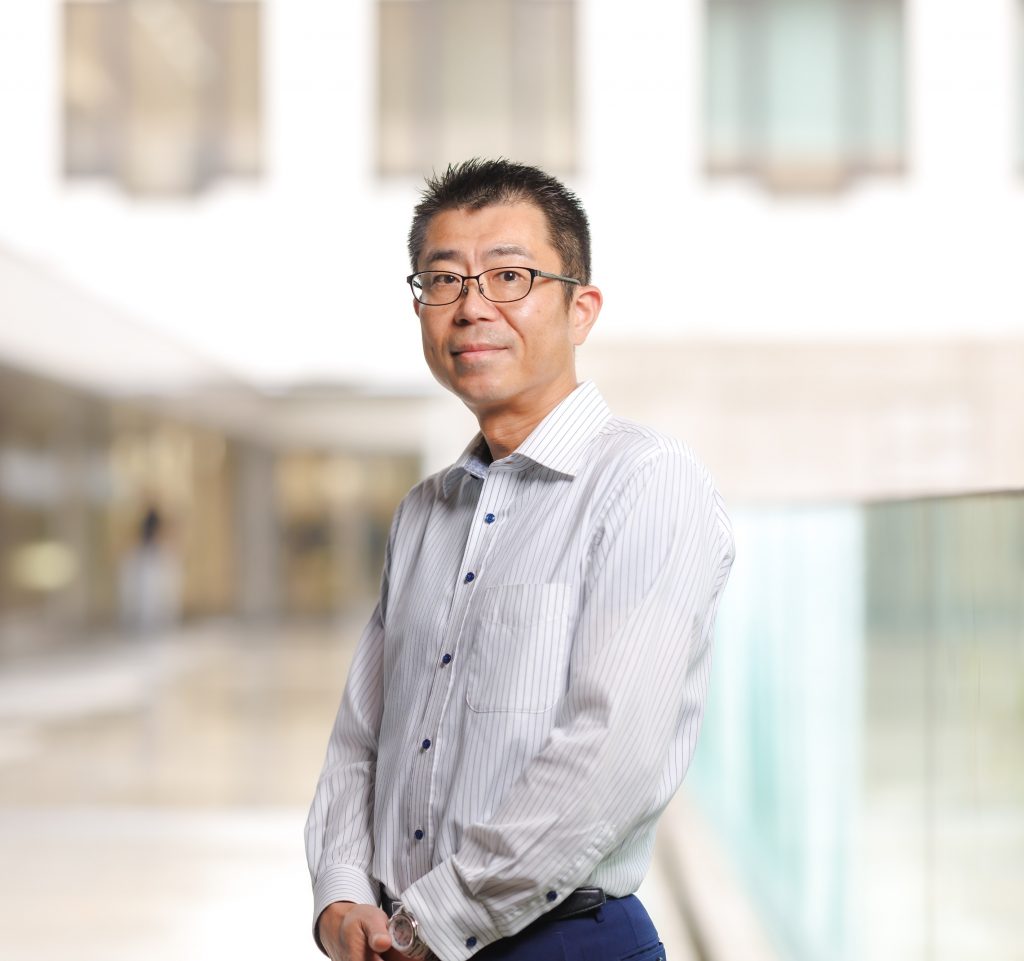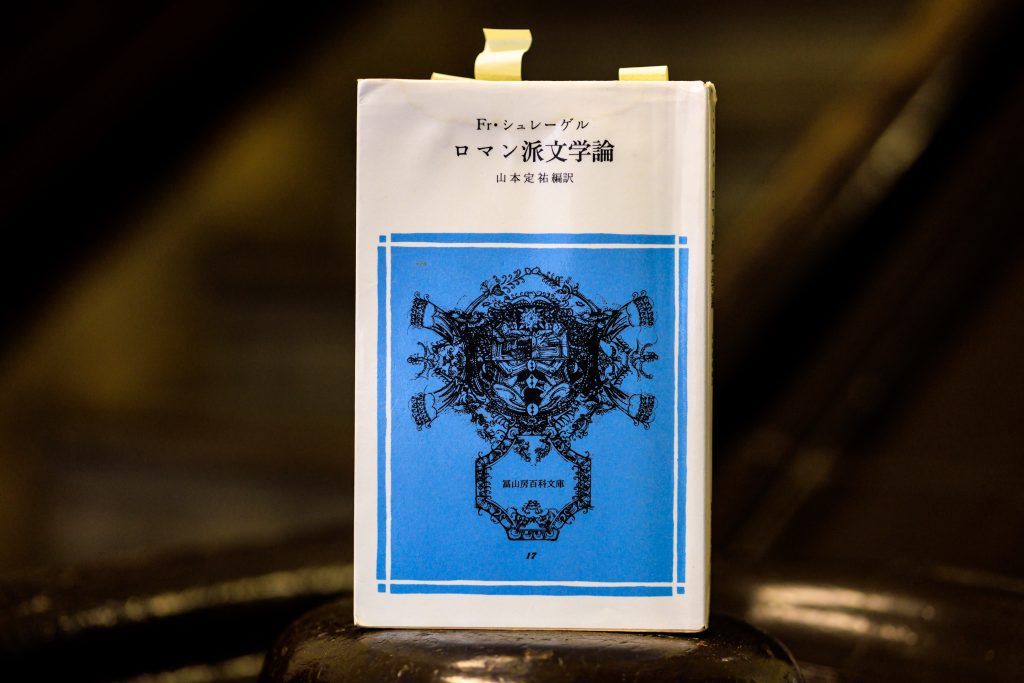
Professor Yu Takahashi of the Faculty of Humanities researches the literature of Romanticism, an artistic movement of the late 18th to 19th centuries. He believes that the perspectives of Romantic literature—which sought to harmonize reason and emotion—are still relevant when considering present-day issues such as nuclear power and war.
In Japan, the words “Romanticism” and “Romanticists” are perhaps most strongly associated with composers such as Schumann and Schubert. However, Romanticism was originally a literary movement, before it grew to encompass the fine arts and music.
Romanticism emerged in the late 18th century, at a time when the French Revolutionary Wars were sparking political chaos across Europe. The decline of Christianity and major advances in the natural sciences led to traditional worldviews being overturned. It was a time of crisis, when society’s belief systems were upended.
Romanticism was rooted in the determination to create a new spiritual foundation; the Romanticists themselves referred to their creative works as “a new mythology” and “a new Bible.”
The main subject of my research is Novalis, a central character of the early Romantic period. Born in Germany, Novalis was not only a poet and philosopher, but also a mining engineer well versed in the latest developments in the natural sciences. His scientific endeavors included experiments in both physics and chemistry. He also aspired to harmonize the notions of reason and emotion.
His most famous work is the unfinished novel Heinrich von Ofterdingen. It tells of a youth who journeys to find a blue flower that appeared in his dreams. The youth encounters various people on his travels—including Knights of the Crusades, and one of their captives, a woman from the East—and in time awakens to his calling as a poet. The story is epic in scale, and seeks to create the world of “a new mythology.”
A mythology that seeks to reclaim human ties to nature and the earth

For Novalis, a new mythology did not just mean writing stories; it meant actually changing the world. The Romanticists idealized ancient Greece and medieval Europe, and sought to reshape the world according to mythological principles.
Politically, Romanticism espoused cosmopolitanism, and aimed to eliminate religious wars and border disputes. The Romanticists devised a cosmology for understanding the earth and the universe which could take the place of the Bible, and they sought to reestablish humankind’s ties with nature.
Grimms’ Fairy Tales, for example, are a product of Romanticism. The tales are populated with forests and wolves, but at the time of its publication Germany had already been shorn of its woodlands. By publishing tales in which forests and animals of the past feature prominently, its authors encouraged a reconsideration of the relationship between human societies and the natural world.
A chance to consider issues underlying nuclear accidents and war
The Romanticists believed that the separation of reason and emotion was dangerous. From the modern period onward, people have sacrificed both emotions and connections with nature in pursuit of economic efficiency. Indeed, it might be argued that attaching excessive importance to reason—typified by an overreliance on statistics and data—was one of the causes of the Fukushima nuclear accident.
Nuclear power plants operate in a realm that is entirely disconnected from the five senses and that cannot be perceived by humans. Originally, electricity was intended as a means for living, but the means and the goal became reversed, with life itself being sacrificed in pursuit of how much electricity and how much profit could be made. The pursuit of profit led, in the end, to the accident.
Since then, there has been a reevaluation of power generation using solar, wind, and water—resources that are closely connected with the human senses. It seems to me that this switch of energy sources also represents a return to the most primitive of human senses.
The wars taking place today stem from a competition for resources, where resources that should serve as a means for living have instead become the end goal. The Romanticists believed that reducing profit to something measured purely in numbers and data would lead to a disconnect between human lifestyles and sensibilities; this outlook remains relevant today, and it gives meaning to my research into Romanticism.
The book I recommend
“Roman-ha Bungaku-ron”(Theory of Romantic Literature)
by Friedrich Schlegel, Japanese translation by Sadasuke Yamamoto, Fuzambo Hyakabunko

This book explains the concepts of Romanticism. The “new mythology” of the Romanticists was not meant to be created from scratch; rather, critiquing and overcoming the literature of the past would lead to the emergence of a new literature. I find this notion of literary criticism fascinating—it impels me to consider the very meaning of literary studies.
-
Yu Takahashi
- Professor
Department of German Literature
Faculty of Humanities
- Professor
-
Graduated from the Department of German Literature, Faculty of Letters, Keio University. Obtained his master’s degree from the university’s Graduate School of Letters, Department of German Literature before receiving his Ph.D. in literature from Trier University in Germany. Worked as a lecturer at the Utsunomiya University School of International Studies, and as an associate professor then professor at the Fukushima University Faculty of Human Development and Culture, before assuming his current position at Sophia University in 2025.
- Department of German Literature
Interviewed: June 2025